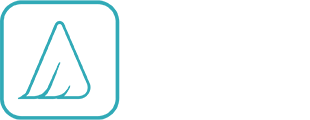Meet the team bringing Stephen Hawking-level assistive tech to Australians with disabilities
While the late Stephen Hawking advanced theoretical physics, he also furthered the understanding and adoption of assistive technology. In his World Report on Disability delivered to the World Health Organisation using augmentative and alternative communication (AAC) tools, he advocated for broader access, saying, “We have a moral duty to remove the barriers to participation, and to invest sufficient funding and expertise to unlock the vast potential of people with disabilities.” Ten years after his report, a Brisbane-based healthcare tech company has risen to the challenge in a unique way.
For V-TOL Aerospace CEO Mark Xavier, the Ariel Care joint venture is a way to incubate technology to address society’s most critical issues for its most vulnerable. While completing his MBA, Mr Xavier was particularly inspired by Maslow’s hierarchy of needs. This behavioural science theory by psychologist Abraham Maslow is essentially the recipe for human happiness. To Mr Xavier the theory offers a very clear technical and success-based pathway, beginning with the basic motivations for human behaviour: physiological needs such as food, water, air, safety, etc.

The quest to make happiness achievable
Since then, Mr Xavier has always been aware of the potential for advanced technology to promote happiness all the way up the pyramid. However, a chance meeting with SDA Homes CEO David Beard offered very practical applications of the advanced tech and robotics in which V-TOL specialised.
Already, he says, “SDA Homes delivers very effectively the most basic part of the hierarchy — a safe, comfortable environment.” A partnership between Dave’s NDIS housing enterprise and V-TOL Aerospace addresses Maslow’s next level up by improving health outcomes.
Together, they envision utilising the tech to reach the highest level of Maslow’s hierarchy: self-actualisation. The opportunity is to not just sustain people, but most importantly enhance their everyday lives while maintaining an element of privacy.
For Mr Xavier, that is one of the driving motivators for launching Ariel Care. By enhancing the iSaint platform in the SDA Smart Homes with autonomous systems like IoT data-collecting sensors, the tech will undoubtedly improve outcomes for participants and care routines for support workers.
Yet he is aiming for, he says, “The ultimate outcome — a happier, more engaged person who can join the workforce from the safety and comfort of their bed, earning an income for themselves and rest of their family, should they choose to do that. If I was ever in that situation, that’s the sort of outcome I would want.”
Self-actualisation through assistive tech
To that end, the revolutionary incorporation of cutting-edge AAC tools, similar to what was used by Stephen Hawking to communicate, will be the game changer that allows people living with disability to better integrate with society. While Mr Hawking used his cheek muscle to control software on his computer to be able to speak, Ariel Care’s participants might use a combination of technologies, including the latest eye movement cameras, to communicate.
Depending on the person’s cognitive and physical abilities, the Ariel Care iSaint communicator can be customised to respond to a range of non-verbal cues, whether muscle control like Mr Hawking, gestures or sounds. It is a platform that will open opportunities for someone recovering from a traumatic brain injury or degenerative disease to engage socially, like interacting with family, in chatrooms with friends or on social media about personal interests.
“There is a lot we believe we can do,” he says, like allowing participants to join a virtual workplace, operate a robot or remotely control a process. Even the ability to give feedback to their medical team to optimise their own health plans allows for independence that many people with high-care needs do not currently have.
As part of Ariel Care’s Pilot Program, participants join a ground-breaking team that includes research partners University of Queensland and Queensland University of Technology. The pilot is currently accepting expressions of interest from people whose data and feedback will help the iSaint artificial intelligence platform become smarter at customising itself to individual needs, recognising things like choking and falls.
The global safety and security implications
With the potential to alert multiple parties in real time when there is inappropriate touch, an unknown visitor, or sexual assault, Ariel Care’s tech will offer a new level of safety and security measures. In turn, that technology could have a global impact on minimising domestic violence.
Mr Xavier talks about the tipping point at which the technology will at some point then reverse osmosis back into general society. “We’re only a small Queensland business right now,” he says, “but, end of the day, all the innovation comes out of companies like us.”
Do you know someone with high-care needs, or perhaps a support worker or caregiver, who could benefit from Ariel Care’s innovative solutions? Ariel Care is running a fully funded pilot program and is currently accepting applications.
Learn more about Ariel Care’s Pilot Program: https://ariel.care/join-our-pilot/
